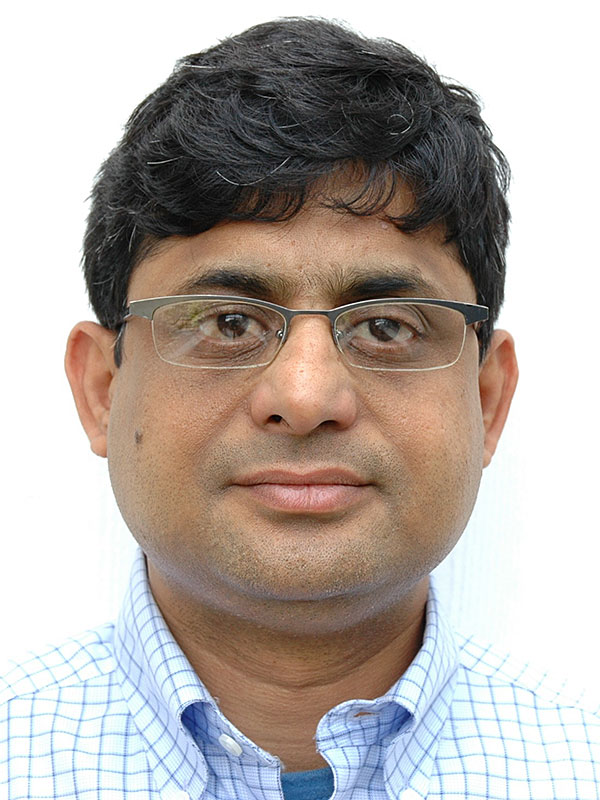
Dey, Madhusudan
Professor of Biological Science
Education
- PhD, Life Sciences, School of Life Sciences, Jawaharlal Nehru University, New Delhi, India, 1994 - 2000
- MSc, Biotechnology, School of Biotechnology, Madurai Kamaraj University, Tamil Nadu, India, 1992-1994
Research Interests
The Dey lab is interested in understanding the fundamental mechanisms that regulate the initiation of protein synthesis (translation) and that regulate the protein folding inside the endoplasmic reticulum (ER).
Translation is a process in which messenger RNA is decoded into a polypeptide chain. This process requires many trans-acting factors (e.g., eIF1, eIF2, eIF2B, eIF3, eIF4, eEF1, etc.) that interact with the ribosome, messenger RNA and transfer RNA. This process is controlled by many protein kinases, including PKR, PERK and GCN2. The Dey lab studies how PKR and PERK specifically phosphorylates eIF2 and how phosphorylated eIF2 inhibits the initiation of protein synthesis.
Almost 30% of nascent proteins co-translationally migrate to the ER, where they fold and mature into biologically active forms. Under patho-physiological conditions, the nascent proteins are unable to fold properly, resulting in accumulation of unfolded/mis-folded proteins inside the ER – a state termed “ER stress”. The ER stress activates cellular responses known as the unfolded protein response (UPR). The UPR involves three major sensors Ire1, PERK and ATF6 in mammalian species. In model organism yeast, only Ire1 senses and signals the UPR. Ire1 initiates the UPR signals by processing the translationally repressed HAC1 mRNA in yeast cells or XBP1 mRNA in human cells. The Dey lab studies how HAC1 mRNA is translationally repressed and how the ER stress de-represses HAC1 mRNA translation.
Recently, the Dey lab has discovered that kinase Kin1 and its isoform Kin2 (mammalian homolog of microtubule affinity regulating kinase, MARK) play a novel regulatory role in the yeast UPR, in addition to their canonical role in cellular exocytosis. This discovery leads them to characterize the Kin-signaling pathway in the yeast UPR.
Selected Publications
George J, Li Y, Kadamberi IP, Parashar D, Tsaih SW, Gupta P, Geethadevi A, Chen C, Ghosh C, Sun Y, Mittal S, Ramchandran R, Rui H, Lopez-Berestein G, Rodriguez-Aguayo C, Leone G, Rader JS, Sood AK, Dey M, Pradeep S, Chaluvally-Raghavan P. "RNA-binding protein FXR1 drives cMYC translation by recruiting eIF4F complex to the translation start site" Cell Rep. (2023), 42 (3), 112228.
Uppala, Jagadeesh K., Sathe, Leena, and Dey, Madhusudan. “The Cap-proximal Secondary Structure Inhibits Translational Inhibition by Precluding Helicase eIF4A Recruitment on HAC1 mRNA.” Journal of Biological Chemistry. (2022), 298 (3), 101648.